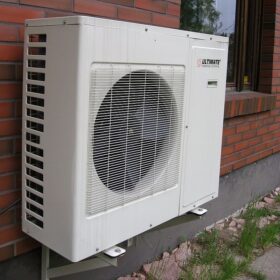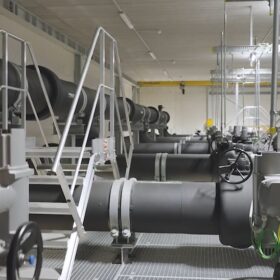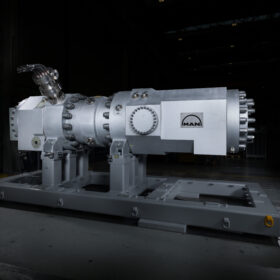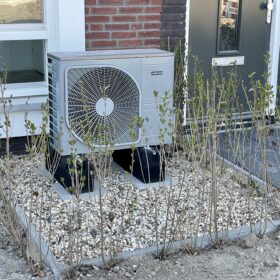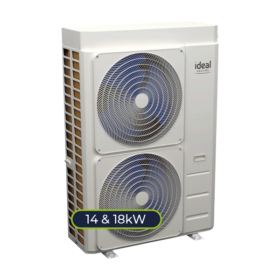New refrigerant may improve coefficient of performance of air-source heat pumps by up to 21%
Developed by a Chinese research group, the novel refrigerant is made of a mixture of carbon dioxide (CO2) and a non-flammable hydrofluoroolefin. It has slightly higher costs compared to conventional compounds, but its creators claims these costs could be significantly reduced with large-scale industrial production.
Netherlands’ largest wastewater heat pump goes online in Utrecht
The largest heat pump in the Netherlands is now online at the Utrecht sewage treatment plant. It generates heat up to 75 C for the local network by using purified hot wastewater from a regional water authority.
Ice-source heat pump system for residential applications
UK scientists designed a new heat pump concept that they claim could be particularly beneficial to newly developed areas or potential residential complexes. The system uses ice or ice slurry as the heat source and its energy consumption is reportedly lower than that of several types commercially available heat pumps.
Midea presents 4.5 kW residential heat pump
The Chinese manufacturer said its new propane heat pump doesn’t need an outdoor unit and is able to operate with temperatures down to -20 C.
New algorithm enables cost-optimized operation of residential heat pumps
Researchers in Austria have developed a new predictive control algorithm that can reportedly improve comfort levels in houses equipped with heat pumps. The algorithm also enables price predictions based on analysis of day-ahead electricity prices.
Mitsubishi Electric launches water-to-water heat pumps for commercial, industrial applications
The Japanese manufacturer said the new Climaveneta EW-HT-G05 products have a size ranging from 73 kW to 129.3 kW and a coefficent of performance of up to 3.77.
Finland to build world’s largest air-to-water heat pump plant
Helen, a Helsinki-based energy company, has unveiled plans for a large-scale district heating plant complex. Germany’s MAN Energy Solutions is supplying a 33 MW air-to-water heat pump, the largest ever used for a district-heating plant, with ambient air and renewable electricity for heat generation.
Dutch scientists assess consumers’ willingness to pay for renewable heating
A survey of 1,797 residents was used to determine the willingness to pay for low-carbon residential heating in the Netherlands. On average, respondents were willing to pay a premium of 33% for electricity-based heating. Policy recommendations were also provided as part of the study.
Subsidies support record UK heat pump installation figures
More than 4,500 certified heat pump installations were recorded in the United Kingdom in July 2024, while battery storage installations continue to significantly outperform previous years. Subsidy schemes that slash the cost of installing a heat pump are a key growth driver, according to the industry.
Ideal Heating launches new air source heat pump series
The UK-based manufacturer said the new Ecomod products have a size ranging from 14 kW to 70 kW and a coefficent of performance of up to 4.85.
